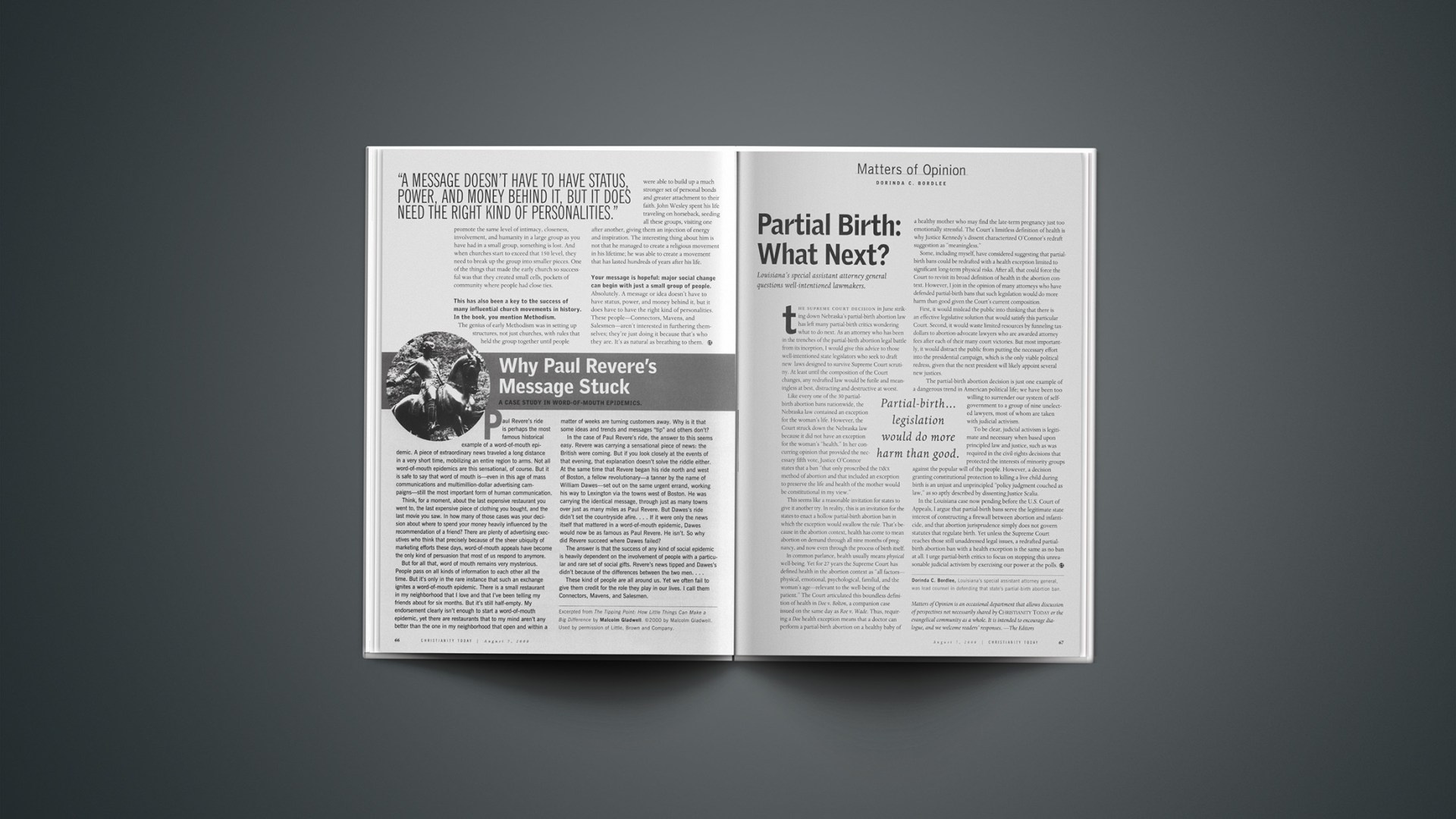Paul Revere's ride is perhaps the most famous historical example of a word-of-mouth epidemic. A piece of extraordinary news traveled a long distance in a very short time, mobilizing an entire region to arms. Not all word-of-mouth epidemics are this sensational, of course. But it is safe to say that word of mouth is—even in this age of mass communications and multimillion-dollar advertising campaigns—still the most important form of human communication.Think, for a moment, about the last expensive restaurant you went to, the last expensive piece of clothing you bought, and the last movie you saw. In how many of those cases was your decision about where to spend your money heavily influenced by the recommendation of a friend? There are plenty of advertising executives who think that precisely because of the sheer ubiquity of marketing efforts these days, word-of-mouth appeals have become the only kind of persuasion that most of us respond to anymore.
But for all that, word of mouth remains very mysterious. People pass on all kinds of information to each other all the time. But it's only in the rare instance that such an exchange ignites a word-of-mouth epidemic. There is a small restaurant in my neighborhood that I love and that I've been telling my friends about for six months. But it's still half-empty. My endorsement clearly isn't enough to start a word-of-mouth epidemic, yet there are restaurants that to my mind aren't any better than the one in my neighborhood that open and within a matter of weeks are turning customers away. Why is it that some ideas and trends and messages "tip" and others don't?
In the case of Paul Revere's ride, the answer to this seems easy. Revere was carrying a sensational piece of news: the British were coming. But if you look closely at the events of that evening, that explanation doesn't solve the riddle either. At the same time that Revere began his ride north and west of Boston, a fellow revolutionary—a tanner by the name of William Dawes—set out on the same urgent errand, working his way to Lexington via the towns west of Boston. He was carrying the identical message, through just as many towns over just as many miles as Paul Revere. But Dawes's ride didn't set the countryside afire … If it were only the news itself that mattered in a word-of-mouth epidemic, Dawes would now be as famous as Paul Revere. He isn't. So why did Revere succeed where Dawes failed?
The answer is that the success of any kind of social epidemic is heavily dependent on the involvement of people with a particular and rare set of social gifts. Revere's news tipped and Dawes's didn't because of the differences between the two men … These kind of people are all around us. Yet we often fail to give them credit for the role they play in our lives. I call them Connectors, Mavens, and Salesmen. Excerpted from The Tipping Point: How Little Things Can Make a Big Difference by Malcolm Gladwell. © 2000 by Malcolm Gladwell. Used by permission of Little, Brown and Company.
Related Elsewhere
See our interview with Tipping Point author Malcolm Gladwell here.
Copyright © 2000 Christianity Today. Click for reprint information.










